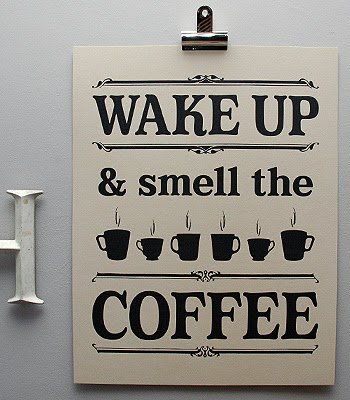Just called the ASA regarding the CRNA article.
They told me that ASA Pres talked to the Boston Globe today about it:
http://www.boston.com/news/health/blog/2010/08/nurse_anestheti.html
Also told me that they will forward a response to my personal email, which they told me to feel free to distribute.
Here we go...
August 3, 2010
Dear Member,
As you are aware, the American Association of Nurse Anesthetists (AANA) sponsored a study published in Health Affairs August issue titled, "No Harm Found When Nurse Anesthetists Work Without Supervision By Physicians." * I wanted to share with you the work we have done to thwart this misinformation as it enters the public domain.
Leadership has worked with staff to complete a thorough analysis of the study. On Monday, August 2, 2010, I had the opportunity to provide ASA's perspective on the study to the Boston Globe's Elizabeth Cooney who writes the column "White Coat Notes". * You can read the story "http://www.boston.com/news/health/blog/2010/08/nurse_anestheti.html"here.
The following is an overview of the points we discussed from ASA's analysis with the reporter as key shortcomings of the study, with which you should be familiar in case this issue arises:
The study's methodology relies on billing data: *****
*****
QZ modifier overstates independent practice because paperwork and documentation reduced for anesthesiologist who may report anesthesiologist directed care with this billing modifier. Even in the absence of an anesthesiologist, a surgeon is present and providing medical input into the patient's care; characterizing this as "independent" CRNA practice misrepresents the actual nature of the care delivered.
The study reviews about 480,000 cases that would have a predicted anesthesia related mortality in 2 cases: analysis of anesthesia related mortality is grossly underpowered.
Billing data does not permit distinguishing between surgical and anesthesia complications or mortality.
Anesthesiologists' advances in patient safety must be preserved. *Recent data showed one death per 200,000-300,000 anesthetics administered. (Committee on Quality of Healthcare in America, Institute of Medicine: To Err is Human, Building a Safer Health System. *Edited by Kohn L, Corrigan J, Donaldson M. *Washington, National Academy Press, 1999, p 241)
Anesthesiologists not only care for patients undergoing the most complex procedures (base unit differential) but also the sicker patients undergoing all procedures (unrecognized selection bias). *These considerations would suggest dramatically better outcomes for CRNAs, but this is not seen. *
In fact, CRNA only cases (QZ) actually showed worsening mortality and complications, while other groups improved (see tables below).
Even equivalent outcomes with lower risk cases would be a troubling finding. And the most significant improvement in mortality and complications took place in the ACT model of practice, further supporting the value of anesthesiologists' involvement in care. *
(Reference Silber 2000 study: *>6 excess deaths/1000 cases from failure to rescue from surgical or anesthetic complication in absence of anesthesiologist)

From Table 4 in Dulisse & Cromwell:
MORTALITY
Non Opt Out
Pre Opt Out
Post Opt Out
% Change
MD
1
0.797
0.788
-1.13%
CRNA
0.899
0.651
0.689
5.84%
Team
0.959
0.708
0.565
-20.2%

*
COMPLICATIONS
Non Opt Out
Pre Opt Out
Post Opt Out
% Change
MD
1
0.824
0.818
-0.73%
CRNA
0.992
0.798
0.813
1.88%
Team
1.067
0.927
0.903
-2.59%
*
Cost of care is equivalent under Medicare and Medicare-based payment systems. Characterizing independent CRNA practice as "cost effective" misrepresents the facts.
The study understates differences in the training of anesthesiologists and nurse anesthetists – nurse anesthetists 2 yrs post baccalaureate, anesthesiologists 8 yrs, including a broad foundation in general medicine, intensive care, and pain management.
Overwhelming public preference for physician supervision of anesthesia care (>75%) (Tarrance 2001). Public policy should reflect this preference.
The study is funded by the American Association of Nurse Anesthetists and like many prior studies conducted by Dr. Cromwell under contract to AANA, adheres to AANA's public policy agenda.
Anesthesiology has enjoyed enormous success in recent years in media exposure of the role of the anesthesiologist. This coverage has appeared on the most prominent and prestigious outlets in the world including the New York Times, Wall Street Journal, CNN to name a few. We will be unrelenting in promoting the expertise of the anesthesiologist and our rightful place leading perioperative care. Each of us has the opportunity to deliver this message through our actions and through our words with the hundreds of patients for whom we each care annually. Both in the press and at the bedside, we mustn't miss an opportunity to educate and inform the public about the specialty.
Sincerely yours,
Alexander A. Hannenberg, M.D.
President


